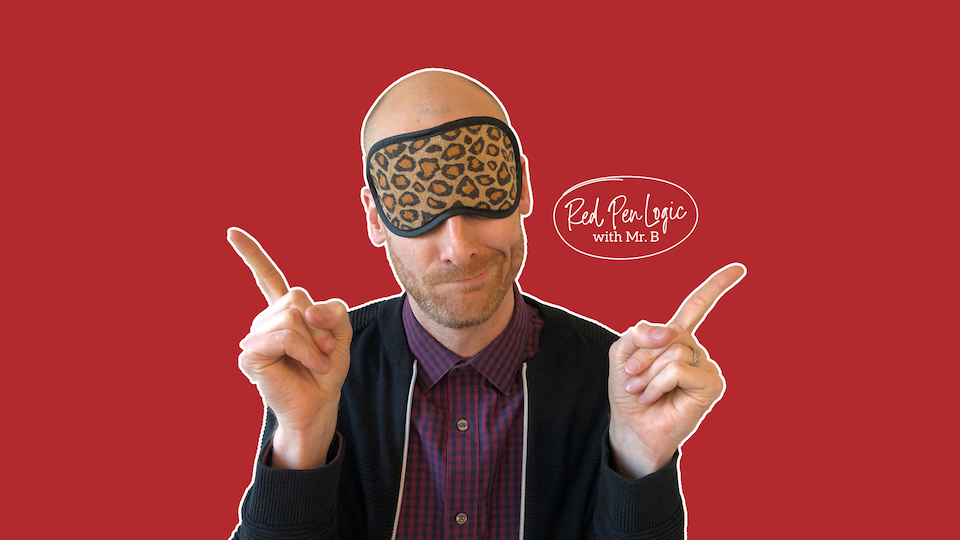
In today’s example, Atheist Quote Bot offers a definition of faith from atheist philosopher Peter Boghossian. The tweet simply reads: “Definition of Faith: Pretending to know things you don’t know.” This definition has two major problems. First, it isn’t biblical. That is, Boghossian’s definition of faith is not the Bible’s definition. It’s just the opposite. Biblically informed Christians define faith as trusting in what you have reason to believe is true.
Second, Boghossian’s definition treats faith as a way of knowing—pretending to know things you don’t know. That’s another straw man. Christian faith is trust based on knowledge grounded in evidence. Each part of that sentence is important.
Sadly, many—like Atheist Quote Bot—will blindly believe Boghossian without looking into what Christianity actually teaches. Ironically, he just asserts his definition of faith without any evidence.
Transcript
If you’re going to critique something basic to Christianity, don’t be blind to what you’re critiquing.
I’m Tim Barnett, and today we’re applying some red pen logic to a tweet from Atheist Quote Bot quoting well-known atheist Peter Boghossian. Class is in session.
This is Red Pen Logic with Mr. B, where we help you assess bad thinking by using good thinking. Plus, we have some fun in the process. In today’s example, Atheist Quote Bot offers a definition of faith from atheist Peter Boghossian. The tweet simply reads, “Definition of Faith: Pretending to know things you don’t know.” This is a quote from Boghossian’s book A Manual for Creating Atheists. (It should have been called A Manual for Creating Atheists Who Create Straw Men.) All right, it’s time for Mr. B to pull out the red pen and respond to Dr. B. (See what I did there?)
First, Boghossian’s definition isn’t biblical. It may be his definition, but it’s not the Bible’s definition. If you want to critique another’s view, you have to critique their view and not your own distortion of their view. Otherwise, you’ll just be jousting with a straw man. Boghossian is welcome to make up his own definition of faith—have at it—but he isn’t welcome to make up what the Bible means when it uses the word.
Boghossian’s definition of faith is not our definition of faith. Ours is actually just the opposite. Biblically informed Christians define faith as trusting in what you have good reason to believe is true. And where would they get such a crazy idea? I’m glad you asked.
Consider John chapter 20: “Now Jesus did many other signs”—those would be miracles—“in the presence of the disciples, which are not written in this book; but these are written”—why, John?—“so that you may believe that Jesus is the Christ, the Son of God, and that by believing you may have life in His name.” Note, John clearly states that belief is based on evidence. The whole reason John wrote his Gospel was to provide trustworthy eyewitness evidence to base belief on. Does that sound like John wants us to believe without evidence?
Or how about these statements from the Bible: “To these He also presented Himself alive after His suffering, by many convincing proofs, appearing to them over the period of 40 days and speaking of the things concerning the kingdom of God.” And: “Even though you do not believe Me, believe the works“—that is, the miracles—“that you may know and understand the Father is in Me, and I am in the Father.” Now, someone could say the evidence is inadequate. Fair enough. But that doesn’t mean there’s no appeal to evidence. So, Boghossian gets faith wrong. Sorry.
But there’s a second problem.
Boghossian says Christians think faith is a way of knowing—pretending to know things you don’t know. Christian faith is trust based on knowledge grounded in evidence. Each part of that sentence is important. Faith, or trust, rests on knowledge, which in turn rests on reliable evidence. So, we put our trust in something we know because of the evidence.
Boghossian says faith is a bad way of knowing. He’s right. But biblical faith is not a way of knowing; it’s a way of trusting. First, we know something based on reliable evidence. Then, we act on our knowledge by putting our faith in it. So, faith and knowledge are connected, but they’re in different categories. Faith is not a way of knowing (or “epistemology” for you philosophy nerds—you know who you are). Rather, it’s a way of trusting in what you have reason to believe is true. It’s an act of the will.
So, what have we learned? First, Boghossian misrepresents faith by defining it as “pretending to know what you don’t know.” This definition of faith may serve his own purpose, but it doesn’t accurately reflect the teachings of biblical Christianity. Boghossian doesn’t critique what biblically informed Christians actually believe, which is trusting in what you have reason to believe is true. Second, Boghossian treats faith as a way of knowing, but faith doesn’t belong in the knowledge category. Rather, faith is in the act of will category. It’s your response to what you’ve come to know through other means.
Sadly, many, like Atheist Quote Bot, will blindly believe Boghossian without looking into what Christianity actually teaches. Ironically, he just asserts his definition of faith without any evidence. That’s right. Boghossian, who attacks blind faith, expects you to accept his definition of faith on blind faith. Don’t take the bait.
Class dismissed.

